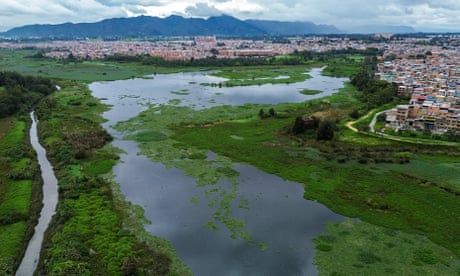
The marshes in Colombia’s capital are sacred to Indigenous peoples, provide vital wildlife habitats and could help the city adapt to climate change. But after centuries of development they are close to collapse
- Photographs by Antonio Cascio
Early last year, Bogotá faced a prolonged drought, leading to historically low water levels in reservoirs and forcing Colombia’s authorities to impose water rationing. Then, in November, heavy rains triggered widespread flooding, submerging streets, stranding vehicles and disrupting traffic.
People living in neighbourhoods built over wetlands, such as Suba Rincón, suffered a double impact from these extreme events, that served to underscore the city’s vulnerability to deforestation, El Niño and the climate crisis. In these districts people have been left counting the cost of repeated floods.
Continue reading...